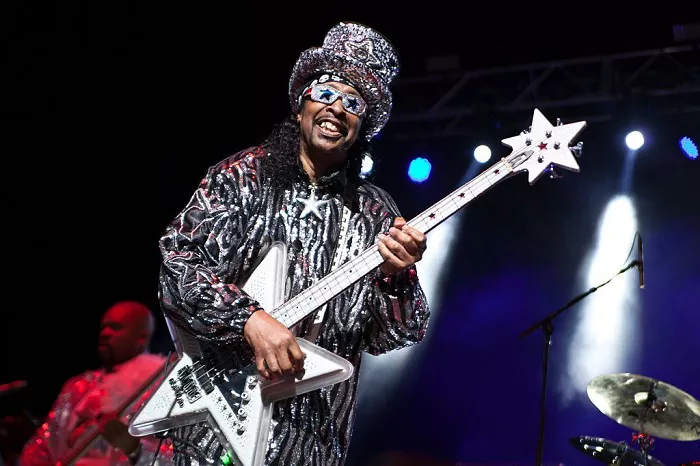When it comes to the evolution of music, one genre stands out as a testament to the power of rhythm and soul: funk. This article delves into the fascinating history of funk music, exploring its inception, key contributors, and its enduring influence on contemporary music. From the roots of funk in African and African-American traditions to the iconic musicians who shaped the genre, this journey will illuminate the vibrant world of funk.
The Birth of Funk: A Pioneering Rhythm
Funk, as a musical genre, was born out of the African and African-American musical traditions, with its roots firmly embedded in rhythm and groove. The very essence of funk lies in its distinctive syncopated rhythms, characterized by an emphasis on the downbeat and a relentless groove that compels the listener to move. As funk reverberates through the annals of musical history, it’s important to recognize that funk didn’t emerge overnight, but rather through a gradual evolution.
African Influences: The Rhythmic Heartbeat of Funk
The origins of funk can be traced back to Africa, where rhythm and percussion were integral to daily life and communal celebrations. The word “funk” itself is believed to have African roots, stemming from the KiKongo word “lu-fuki,” meaning “strong body odor” or “smell.” This connection between funk and the physicality of rhythm is evident in the music’s primal appeal.
New Orleans: The Cradle of Funk
One of the key cities in the development of funk was New Orleans, where a unique blend of African, European, and Caribbean musical influences converged. The city’s vibrant brass bands and second-line parades provided fertile ground for the emergence of funk’s signature groove. In the lively streets of New Orleans, the spirit of funk was born, echoing the word funk in the relentless beats of its marching bands and jazz ensembles.
James Brown: The Godfather of Funk
No discussion of funk music is complete without paying homage to the legendary James Brown. Often referred to as the “Godfather of Funk,” Brown played a pivotal role in shaping the genre. His track “Papa’s Got a Brand New Bag” in 1965 marked a turning point in the history of funk, as it introduced a new level of rhythmic complexity and groove. Brown’s relentless pursuit of the funk groove laid the foundation for generations of funk musicians to come.
Sly and the Family Stone: Pushing Boundaries and Spreading the Funk
As the 1960s progressed, funk continued to evolve, with bands like Sly and the Family Stone pushing the boundaries of the genre. Their infectious blend of funk, rock, and soul produced hits like “Dance to the Music” and “Everyday People,” firmly establishing funk as a diverse and ever-expanding musical genre. Sly and the Family Stone’s contribution to funk resonates through the funk that permeates their revolutionary sound.
Parliament-Funkadelic: The Cosmic Architects of Funk
Another influential force in the world of funk was Parliament-Funkadelic, led by the enigmatic George Clinton. This collective of musicians created a unique funk experience, often described as “cosmic funk.” Their elaborate stage shows and surreal concepts, as heard in songs like “Flash Light” and “One Nation Under a Groove,” brought funk to new heights.
The Funky Legacy: Contemporary Resonance
Funk music’s influence on contemporary music is undeniable. Funk continues to reverberate through various genres, from hip-hop to electronic dance music. Artists like Prince, Rick James, and Bruno Mars have all drawn inspiration from the funk pioneers, infusing their own unique styles with the irresistible funk factor. The groove lives on, adapting and evolving in new and exciting ways.
Conclusion
In conclusion, the history of funk music is a testament to the power of rhythm, groove, and soul. With its roots in African traditions, its birth in the streets of New Orleans, and the visionary contributions of musicians like James Brown, Sly and the Family Stone, and Parliament-Funkadelic, funk has left an indelible mark on the musical landscape. Funk resounds through the ages, reminding us of the genre’s enduring appeal and its ability to make us move and feel the rhythm deep within our souls. As funk continues to evolve and inspire, it remains a vibrant and essential part of the musical tapestry, ensuring that its legacy will endure for generations to come.
In this exploration of funk’s origins and evolution, we have discovered how funk is not just a word but a profound and influential musical force. From its roots in Africa to its cosmic explorations with Parliament-Funkadelic, funk’s journey is one of rhythm, groove, and a relentless pursuit of the funkadelic. As we celebrate the pioneers and the contemporary torchbearers of funk, we can’t help but groove to the irresistible beat and say, “Let the funk play on!”

